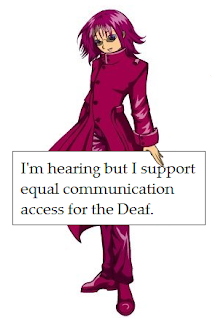There's also a longer article by David Rothenberg on why this is important.
"As human music grows to encompass ever more kinds of sounds and listens more sensitively to what is around us, there will be more interspecies music than ever before. It works best when the human musician welcomes the encounter with openness and respect, ready to take in the unfamiliar and genuinely learn something new, to change one's musical sense in the presence of new and exciting sounds. Approach the situation without too many expectations, and let us make music together that neither species could make apart. It is one more way for us to learn about and to appreciate the animal world."And here's another article, featuring marvellous musical mice (who sing in octaves and shifts in the ultrasonic range).
Timothy Holy and Zhongsheng Guo of Washington University in St. Louis show that male mice “sing” to females in ultrasonic ranges.
“Individual males produce songs with characteristic syllabic and temporal structure,” the authors write.
In this study of captive animals, the mice sing primarily in octaves and shifts. In a study of wild California wild mice, other researchers found that the mice sang in thirds. Patricia Gray says, “This is phenomenal to me as a musician that intervals do matter. They matter to us and to other species as well.”



